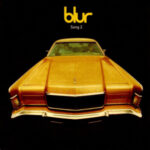
The Butthole Surfers, an American rock band known for their eclectic style and unorthodox approach to music, emerged from the vibrant alternative scene of the 1980s. Formed in San Antonio, Texas, in 1981, the band’s core members included Gibby Haynes (vocals), Paul Leary (guitar), King Coffey (drums), and a rotating cast of bassists, most notably Jeff Pinkus. Their music, a chaotic blend of punk, psychedelia, and noise rock, combined with their bizarre stage antics, cemented their reputation as one of the most provocative and influential bands in the underground music scene.
Gibby Haynes, the son of a children’s television show host, and Paul Leary met while attending Trinity University in San Antonio. Both were drawn to the burgeoning punk rock scene and decided to form a band. Their initial performances were characterized by a raw, unrefined sound, and they quickly garnered attention for their unconventional approach to music and performance. The early years of the Butthole Surfers were marked by relentless touring and a DIY ethic that saw them release several EPs and albums on independent labels.
The band’s first EP, “Butthole Surfers,” was released in 1983 on Alternative Tentacles, the label owned by Dead Kennedys’ frontman Jello Biafra. This was followed by their debut full-length album, “Psychic… Powerless… Another Man’s Sac,” in 1984. The album showcased the band’s signature sound: a blend of abrasive guitar riffs, surreal lyrics, and experimental production techniques. The release received critical acclaim and established the Butthole Surfers as a formidable force in the alternative music scene.
Throughout the mid-1980s, the Butthole Surfers continued to push the boundaries of conventional music and performance. Their live shows became legendary for their unpredictability and shock value. Haynes often used a megaphone or vocal effects to distort his voice, while Leary’s guitar work ranged from melodic to chaotic. The band also employed disturbing and humorous visuals, including footage of medical procedures and unsettling imagery, projected behind them during performances. These elements combined to create a sensory overload that left a lasting impression on audiences.
The release of “Rembrandt Pussyhorse” in 1986 and “Locust Abortion Technician” in 1987 saw the band further explore and refine their sound. “Locust Abortion Technician,” in particular, is considered one of their seminal works. The album’s experimental nature and dark, twisted humor resonated with fans and critics alike. Tracks like “Sweat Loaf,” which reimagined Black Sabbath’s “Sweet Leaf,” and “Graveyard,” with its haunting atmosphere, exemplified the band’s ability to blend the grotesque with the absurd.
In the late 1980s, the Butthole Surfers’ relentless touring schedule began to pay off, as their fan base grew steadily. They signed with the independent label Touch and Go Records and released “Hairway to Steven” in 1988. This album continued their trend of pushing musical boundaries and featured a mix of accessible rock songs and avant-garde experimentation. The band’s refusal to include track titles on the album, instead using enigmatic symbols, only added to their mystique.
The early 1990s marked a significant turning point for the Butthole Surfers. In 1991, they released “piouhgd” on Rough Trade Records, which was less well-received critically but demonstrated their continued commitment to evolving their sound. The following year, they signed with Capitol Records, marking their transition to a major label. This move raised eyebrows among their fans, who wondered how the band’s unconventional style would mesh with the mainstream music industry.
Their major-label debut, “Independent Worm Saloon,” produced by Led Zeppelin’s bassist John Paul Jones, was released in 1993. The album included the single “Who Was in My Room Last Night?” which received considerable airplay on alternative rock radio stations and MTV. The band’s newfound visibility brought them to a wider audience and introduced their chaotic brand of rock to the mainstream.
The success of “Independent Worm Saloon” paved the way for their next album, “Electriclarryland,” released in 1996. The album featured the hit single “Pepper,” which became a crossover success, reaching the top of the Billboard Modern Rock Tracks chart. “Pepper” stood out for its catchy, almost spoken-word verses and infectious chorus, showcasing a more accessible side of the band while retaining their unique edge. The success of “Electriclarryland” brought the Butthole Surfers their highest level of commercial success, but it also marked the peak of their mainstream popularity.
Following the success of “Electriclarryland,” the band faced challenges both creatively and personally. Internal tensions and the pressures of their newfound fame led to a period of relative inactivity. They released “Weird Revolution” in 2001, an album that saw them experimenting with electronic elements and hip-hop influences. While it received mixed reviews, it demonstrated the band’s willingness to continue evolving and experimenting with their sound.
The Butthole Surfers’ influence on alternative and experimental music cannot be overstated. Their willingness to defy genre conventions and their commitment to an irreverent, boundary-pushing aesthetic inspired countless bands in the punk, noise rock, and alternative scenes. They were pioneers in the use of multimedia in live performances, and their blending of humor, horror, and absurdity set them apart from their contemporaries.
Despite the ups and downs of their career, the Butthole Surfers have maintained a loyal fan base and a lasting legacy. Their music, often described as a journey through the bizarre and the surreal, continues to resonate with listeners who appreciate their fearless approach to art. The band’s ability to adapt and reinvent themselves over the years, while staying true to their core ethos of experimentation and irreverence, has ensured their place in the pantheon of alternative rock legends.
In recent years, the Butthole Surfers have sporadically reunited for tours and special performances, much to the delight of their fans. Their legacy is celebrated not only through their recordings but also through the countless artists they have influenced. The band’s impact on the music industry is evident in the continued appreciation for their pioneering spirit and their refusal to conform to the expectations of the mainstream.
The Butthole Surfers remain a testament to the power of creativity and individuality in music. Their journey from the underground punk scene of the 1980s to mainstream success in the 1990s and beyond is a remarkable story of artistic defiance and perseverance. As they continue to be celebrated for their contributions to alternative music, the Butthole Surfers’ legacy endures as a beacon of innovation and irreverence in the world of rock and roll.
This post has already been read 612 times!








